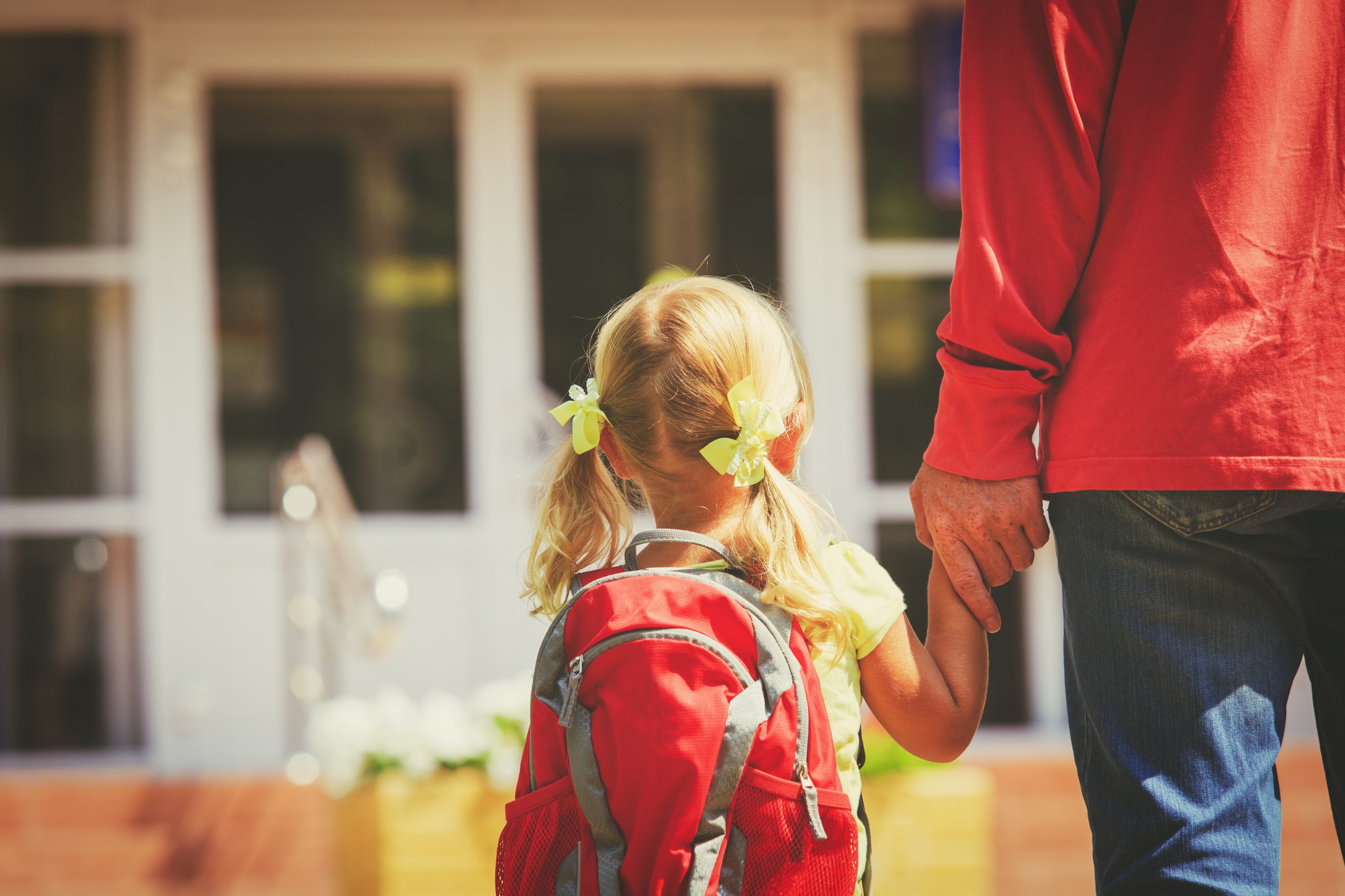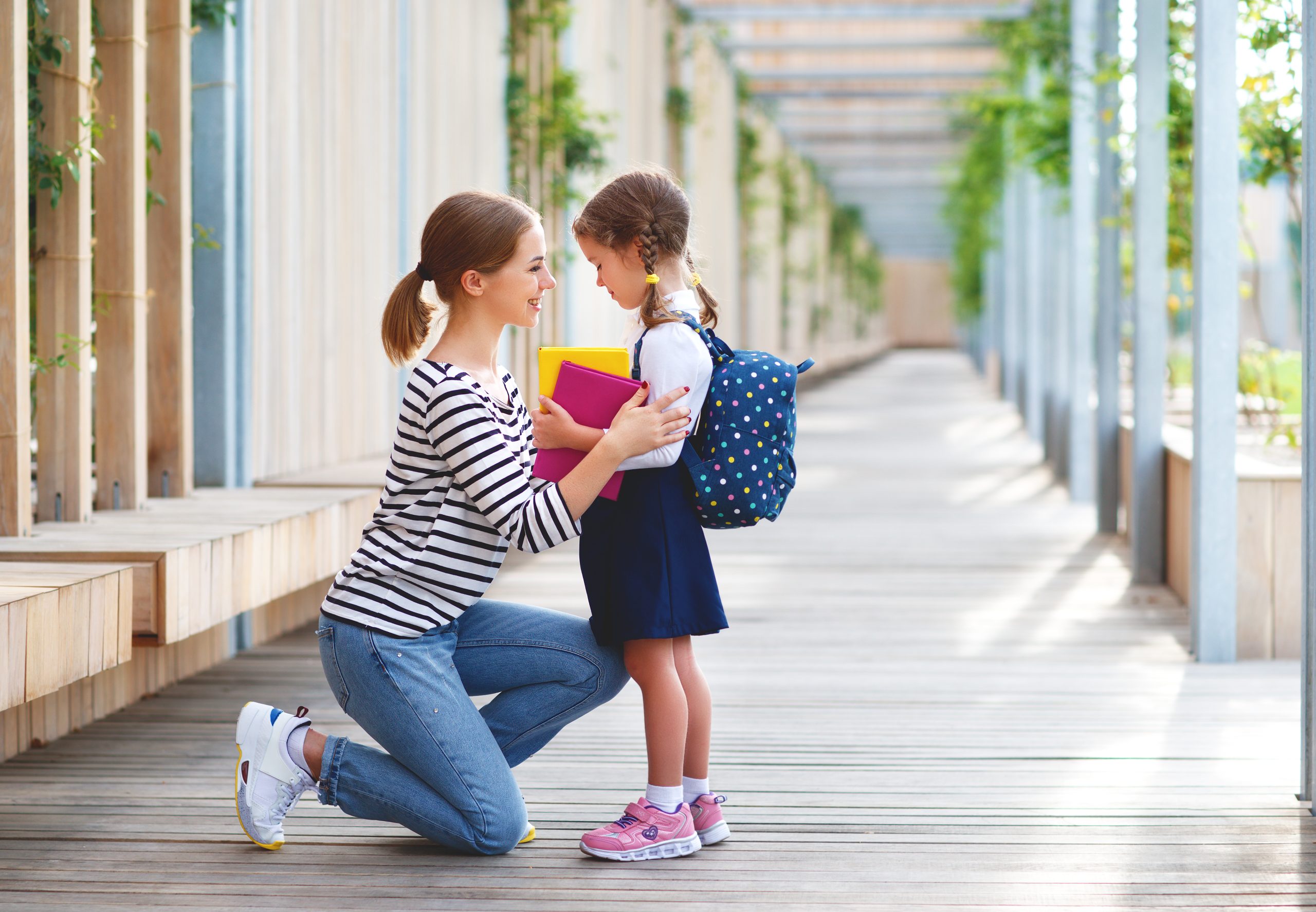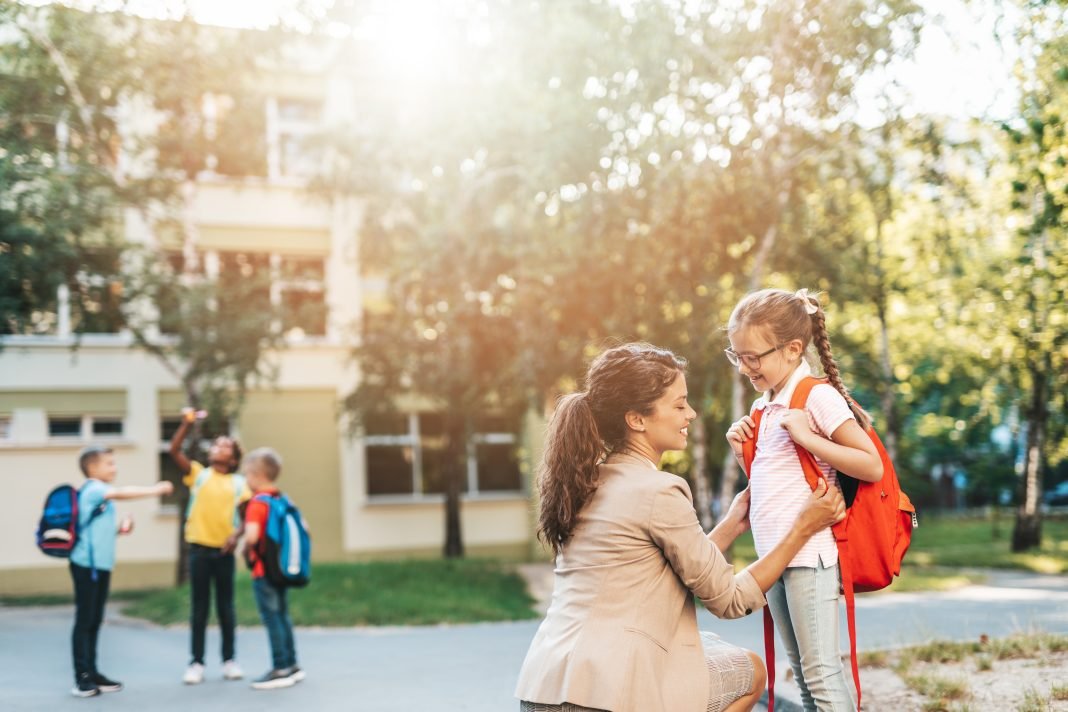We understand how changing routines, new encounters, and meeting new people can be challenging for both parent and child. Stepping Stone School wants to make the experience as comfortable as possible for you and your family. To that end, we’ve compiled a list of suggestions to help you and your family feel prepared for this important and exciting transition.
What can I do to prepare my family for childcare and get my child excited about his/her new school?
Before Your First Day:
- Become Familiar with the School. Get to know the environment and your child’s teacher before the first day. Stepping Stone School offers tours of the campus providing parents with several options to become familiar with their child’s new school.
- Ask questions. Be prepared with questions regarding health and safety procedures. Confirm you are part of a school family which holds your child’s safety and security in the same high regard you do.
- Consider a “Warm Up” Visit. Bring your child in for a few hours. A visit like this allows your child to meet some of the other children, and the teacher, and play with the toys.
- Talk positively with children about going to school. Discuss what it means, what to expect, and what he or she will be doing. Talk about the school’s features, activities, teachers and how much fun your child will have with his or her new friends.
- Be prepared to answer questions. Don’t be surprised if your child asks about seemingly minor or even nonsensical details, especially if this is the first time he or she will be spending time away from you.

Other tips for a successful transition:
- For infants who breastfeed, make sure he or she is comfortable taking a bottle. A good time to begin introducing a bottle is around 3-4 weeks of age after nursing is well established.
- Determine the best timing for your family to begin care based on work schedules and maternity/paternity leave.
- Check with the school for a list of necessary items to bring for your child and make sure to label everything.
- Help your child adjust to new routines by maximizing quality time in the evening and sticking to established bedtime routines and sleep schedules.
- Consider bringing a favorite toy or blanket to help your child feel more comfortable in their new environment.
- Be patient and understanding if your child starts acting differently, as new routines can cause anxiety or separation anxiety.
- Maintain a normal routine and factor in bonding time with your child.
- Prepare yourself by creating a supply packing checklist, setting regular check-ins with your child’s teacher, and acknowledging this is an emotional time for your family.
As infants transition to a new environment and routine, such as starting childcare, they may experience changes in their sleeping patterns, which can result in waking up more often during the night. To help your child get back to a regular sleep routine, it’s important to spend quality time with them in the evening and establish a consistent bedtime routine that includes a calming activity such as a bath, a story or a lullaby. This can help signal to your child that it’s time for sleep. Consistency is key, so sticking to established sleep schedules as closely as possible can also help your child adjust to the new routine more smoothly.
In addition to visiting the school in advance and introducing your child to the teacher and classroom, reading books about transitions and talking about the fun aspects of school can also help your child mentally prepare for the transition to childcare. Encourage your child to express their feelings and address any concerns they may have. This will help them feel more comfortable and confident in their new environment. It is important to be patient and supportive during this transition period. It may take some time for your child to adjust to the new routine.
Keeping a routine is important for children for several reasons. It helps them develop a sense of predictability and security, which can reduce anxiety and promote a sense of stability in their lives. When children know what to expect, they are more likely to feel comfortable and confident in their daily routines.
Additionally, routines can help children develop important life skills such as time management, self-discipline, and responsibility. By following a regular routine, children learn to prioritize tasks and manage their time effectively, which can set them up for success later in life.
There are several proactive measures parents can take to lessen their own feelings of anxiety and support a more positive experience for their child.

Here are a few tips to set the tone for your child’s successful and enjoyable day during morning drop-offs:
- Establish morning routines. Before the start of school, go through similar steps each morning as you prepare for the big day. Experts say that a hug and kiss, followed by a smiling goodbye and leaving is a positive way to reassure your child. Plan on providing yourself an extra 10-15 minutes during this transitional time.
- Send positive signals when saying good-bye. You may feel sad or nervous as a parent, but all expressions to your child should say, “Yay, you are going to have SO MUCH FUN!” When you model calm positive behaviors, your child will do the same.
- Create a good-bye ritual. Consider a special good-bye handshake or a hug-kiss-high-five routine. Practice this ritual with your child prior to the first day. Let your child know you support them and understand how they feel while keeping good-byes brief.
- Acknowledge the “Good-bye.” It may be tempting to leave when your child is distracted, but this can cause unnecessary stress. Acknowledging the good-bye and letting them know you will return builds trust.
- Remain consistent in your routine. Once out of home care begins, work to keep to your routine. During the work week, going to school on the same days, and dropping off and picking up at the same time builds consistency in their routine.
- Avoid the urge to linger or return. Your actions can convey anxiety to your child, making him or her more uncomfortable with you leaving. Our teachers are trained to engage children helping them ease into their new routines.
- Feel free to call or stop by to check on your child during the day. We have an open-door policy. Your child’s care and your peace of mind are our priority. We are here to help!
- Request a contact. Ask the administrator to send an email or call you on the phone to inform you as to how your child is adjusting to their first full day.
- Stay Connected. Sign up for the electronic messaging service letting you know about your child’s day including pictures and videos.
In addition to the suggestions already mentioned, here are a few more things you can do as a parent to help yourself prepare:
- Practice self-care. Make sure you are taking care of your own needs and emotions during this transition. This may include things like getting enough sleep, talking to friends, or practicing relaxation techniques like deep breathing or meditation.
- Connect with other parents. Reach out to other parents who have gone through this transition before, either at your child’s school or in online parenting groups. They can offer advice and support, and may even become new friends.
- Get organized. Take some time to create a calendar or schedule that includes your child’s school schedule, drop-off and pick-up times, and any other important events or activities. This can help you feel more in control and prepared.
- Celebrate milestones. As your child adjusts to their new routine, make sure to celebrate their accomplishments and milestones along the way. This can help build their confidence and reinforce positive associations with their new environment.
This is an exciting time in your child’s development and being prepared can go a long way toward making your child (and you) relaxed and comfortable with this new routine. if you have specific questions, speak to your school but rest assured that your child will adapt, thrive and become prepared for school in an environment that is nurturing and educational.
Stepping Stone School | Authentically Austin Since 1979!
The heart of Rhonda Paver’s vision is the same today as it was over four decades ago, Rhonda and her husband Bill arrived in Austin in 1979 with their first three children. After searching for affordable, quality early care and education for her own children, Rhonda believed the children of Austin deserved something better than what she was finding. Rhonda founded the first Stepping Stone School that year determined to focus on the whole child as an individual. While overseeing the continued growth of Stepping Stone School she obtained a master’s degree in Child Development from UT Austin.
Since that time, with 5 key elements in mind, our schools have helped families and children grow into the next steps for over four decades. We are a Stable growing family of private schools committed to creating better education for a better world. Stepping Stone School is considered by leading industry experts to be a national model of early childhood care and education excellence.










